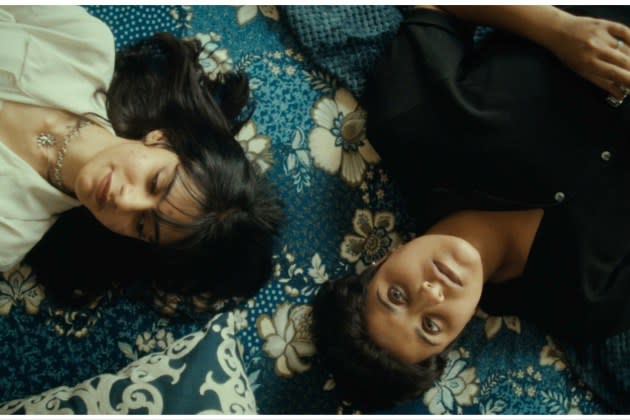‘Immortals’ Review: Thoughtful Doc Treats Young Iraqi Revolutionaries Not as Subjects So Much as Artistic Collaborators

Revolutions bring hope for a better life and strength in community. “Immortals,” a documentary about young Iraqi activists, deals with the aftermath of 2019’s October Protest Movement. What happens when the promise of a better life has been hijacked by insidious political forces? An insightful look into the social and political fabric of modern Iraq, Maja Tschumi’s film shows the quiet desperation of losing hope and having raging emotions that cannot be outwardly expressed. It also chronicles the plight of a generation who shares their dreams and frustrations with other people around the world suffering from similar oppressions.
Although “Immortals” captures the specificity, language and culture of Iraq, the aspirations of the activists it follows mirror those of others in Sudan or Iran, to name just two other places where recently youth have shown that they demand change. The film follows Milo, a feminist dealing with a family of strict constrictive rules, and Khalili, a filmmaker who found his calling in documenting the revolution. They are not so much the film’s subjects as partners with Tschumi, since they co-wrote the script and the narrative is based on their lives and memories.
More from Variety
Milo and Khalili are witnesses and archivists who fill the film with more than just factual recounts. They bare their pain and despair, but also their hopeful vision for a future beyond their country’s current state. Working in collaboration, the three filmmakers re-enact episodes from Milo and Khalili’s past showing events that add context to the current proceedings. It all seamlessly comes together with no disconnect, such that even sharp eyes can’t easily discern which parts are real and which are re-creations.
Khalili’s camera gives “Immortals” its most visceral visuals. He captures the chaos in the streets of Baghdad, and the elation of the revolutionaries striving for change. Bullets fly by and tear gas fills the frame, but he also captures the joy, frivolity and optimism of the demonstrators. His post-revolution testimonials provide the film with haunting commentary. As he looks straight at the camera, mourning lost dreams and talking about dead comrades, “Immortals” proves why his story needs to be told.
Like a screen star, Milo has an expressive face that brims with emotion. As she recounts how she can only wander around Baghdad when dressed in her brother’s male clothes, many feelings are conveyed by the timbre of her voice: her pride in being able to figure out a way to be freer, her skepticism of the situation and her distress that this is what she has to resort to as a rallying feminist. Tschumi and cinematographer Silvio Gerber patiently hold the camera on her. Though Milo is still and calm even in movement, her conviction comes through clearly and passionately.
Milo’s section of the film also conveys the tenderness and affection with which these young people treat each other. In her interactions with a close friend — the two cook, eat and share long late-night conversations — the film shows how they are one another’s oasis amid the danger and frustrations. When conflict arises as decisions need to be made, the camera stays at a remove to show the gulf that appears between friends as priorities shift. These powerful, intimate scenes make audiences privy to private discussions they wouldn’t normally have access to.
Watching “Immortals,” we wonder: Can Milo reconcile her love for her country and friends with her yearning for a fuller life somewhere else? It’s an unanswerable question, and Tschumi knows better than to suggest a definitive response. Her quiet meditative treatise on post-revolution ennui is never didactic. “Immortals” calmly follows its protagonists as they try to overcome a situation bigger than them. Milo and Khalili prove to be active storytellers in control of their narrative, if not their circumstances. In chronicling the lives of these young activists, the film links their struggle and strong conviction to others of their generation around the world. This Iraqi revolution might not have achieved its goals, but optimism reigns as long as young people like Milo and Khalili live another day.
Best of Variety
Sign up for Variety’s Newsletter. For the latest news, follow us on Facebook, Twitter, and Instagram.

 Yahoo News
Yahoo News 